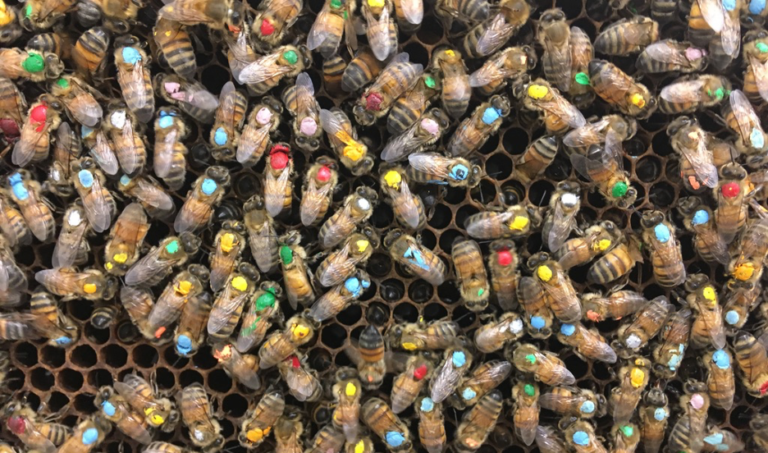Katherine R. Barrs (1,2) & M. Omar Ani (1,3) & Kimberlyn K. Eversman (1,4) & Jonathan T. Rowell (5) & Kaira M. Wagoner (1) & Olav Rueppell (1,6)
-
- Department of Biology, University of North Carolina, Greensboro, NC, USA
-
- Department of Biology, Department of Mathematical Sci,. Georgia Southern University, Statesboro, GA, USA
-
- Department of Chemistry, Rutgers University, New Brunswick, NJ, USA
-
- Department of Mathematics, University of Tennessee, Knoxville, TN, USA
-
- Department of Mathematics and Statistics, University of North Carolina, Greensboro, NC, USA
-
- Present address: Department of Biological Sciences, University of Alberta, Edmonton, Canada
Abstract
Behavioral specialization and cooperation are fundamental in the organization and success of social groups. Honey bee workers display hygienic behavior, defined as the detection, uncapping, and removal of unhealthy brood. We present detailed analyses of behavioral specialization and task partitioning among hygienic worker bees, focusing on uncapping of brood cells and removal of the cells’ content in freeze-killed brood assays. We demonstrate specialization of hygienic workers on either uncapping or removal and task partitioning among multiple individuals. Speed of hygiene decreases with the number of behavioral instances,
suggesting a time cost for cooperation of multiple individuals. Additional analyses of an individual agent-based simulation of hygienic removal of Varroa mite-infested brood demonstrate that erroneous removal of healthy brood can be reduced by task partitioning due to collective decision-making. Combined, our results indicate a speed-accuracy trade-off in the collective performance of hygienic behavior: Hygienic behavior may take longer when many individuals contribute and specialize on different tasks, but this organization of work also can prevent costly mistakes. This trade-off may explain the observed combination of elite workers and numerous other workers that contribute only little.

